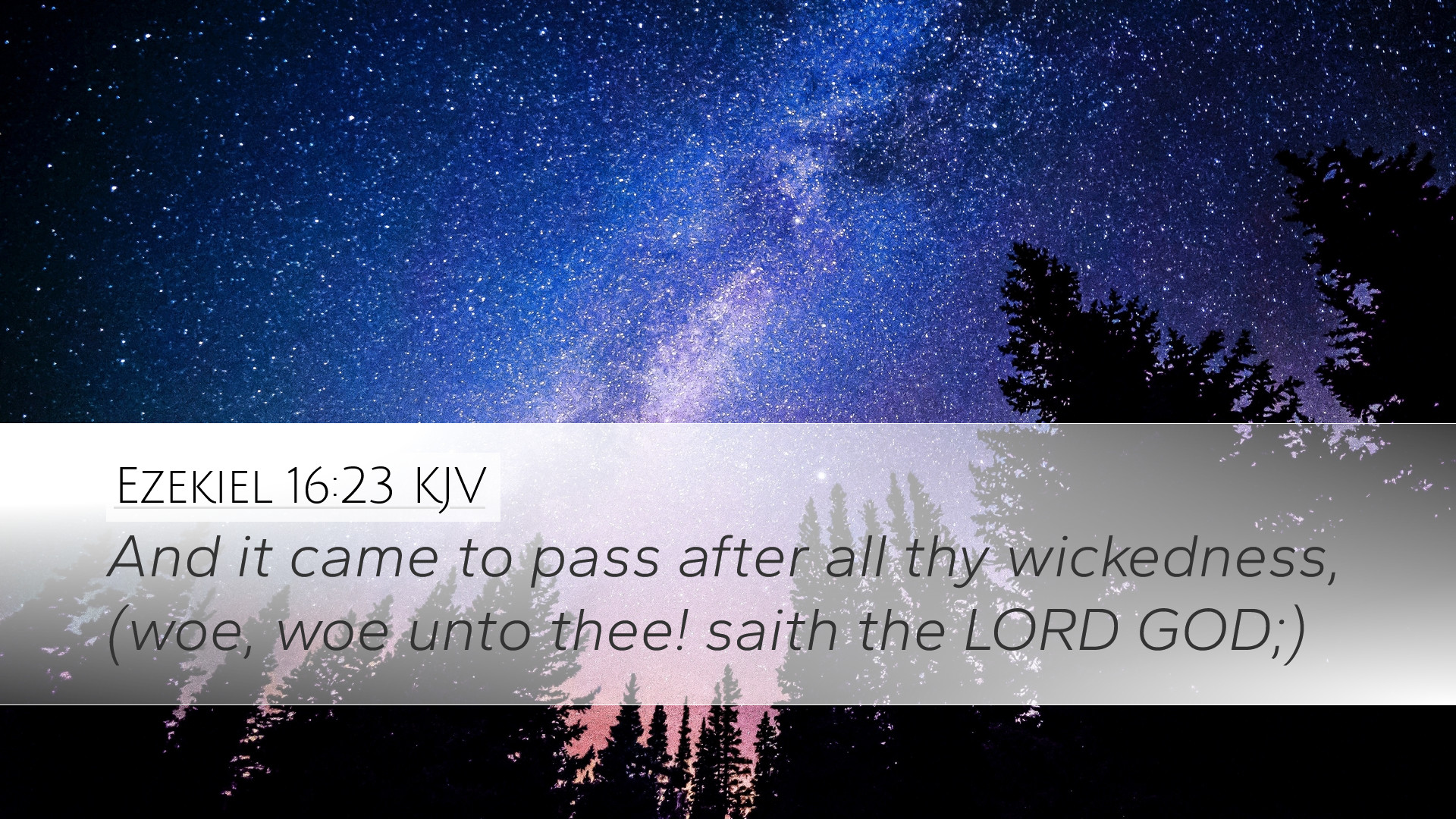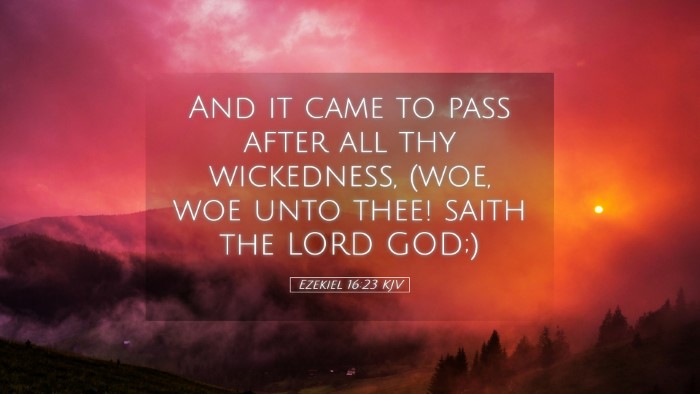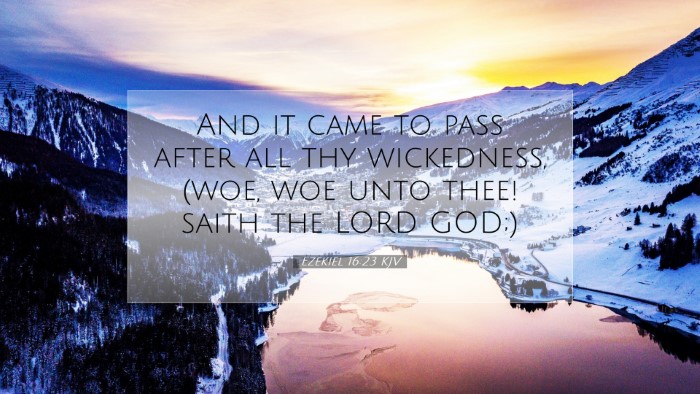Ezekiel 16:23 - Commentary and Insights
Verse: Ezekiel 16:23 - "And it came to pass after all thy wickedness, Woe, woe unto thee! saith the Lord God;"
Introduction
This verse captures a crucial moment in the prophetic narrative of Ezekiel, where God speaks through the prophet to lament the profound wickedness and unfaithfulness of Jerusalem. It invokes a sense of inevitable judgment and serves as a stark reminder of the consequences of national and personal sin. The following commentary synthesizes insights from notable public domain sources such as Matthew Henry, Albert Barnes, and Adam Clarke to provide a deeper understanding of this poignant scripture.
Contextual Background
The Book of Ezekiel was written during the Babylonian exile, a time of great despair for Israel. Within this context, the prophet Ezekiel delivers messages of judgment, restoration, and hope. Ezekiel 16 specifically portrays Jerusalem as an unfaithful wife, which demonstrates the ungratefulness and the idolatry of the people of Israel.
Historical Context
The metaphor of marriage in this chapter powerfully illustrates the covenant relationship between God and Israel. Matthew Henry emphasizes that the history of Jerusalem's spiritual unfaithfulness serves as a warning, portraying the disgrace that comes from turning away from God’s commandments.
Thematic Insights
This verse encapsulates several vital themes:
- The Nature of Sin: The repetition of "woe" highlights the seriousness of sin in the eyes of God. Albert Barnes emphasizes that the warning reflects God's deep concern over human rebellion and its disastrous effects.
- Divine Judgment: The phrases in this verse reiterate the certainty of divine judgment that follows persistent disobedience. Adam Clarke points out that the structural repetition indicates the gravity of the warning—God's tone is one of lamentation rather than mere punishment.
- The Call to Repentance: Even amid judgment, there is an implicit call to repentance. Understanding the weight of their actions is crucial for the people to return to a right relationship with God.
Exegesis of the Text
Examining the original text reveals the emotional depth behind God’s words:
- “After all thy wickedness”: This phrase reflects the cumulative nature of their sins. Both Matthew Henry and Albert Barnes discuss how each offense has led Israel further into moral degradation.
- "Woe, woe unto thee!”: This expression signifies an announcement of doom. Clarke remarks that this refrain underscores the inescapable consequence of their actions, illustrating God’s righteous wrath against wrongdoing.
Theological Implications
The theological implications of Ezekiel 16:23 are profound:
- The Holiness of God: The text presents God as holy and just, unable to overlook sin. This aligns with the broader biblical narrative that showcases God's continual call for holiness among His people.
- Covenantal Faithfulness: God’s anguish over the people’s unfaithfulness highlights His desire for an enduring, faithful relationship. This reflects the covenant theology where God’s promises stand irrespective of human fidelity.
- The Opportunity for Restoration: Though the warning is severe, it comes with the potential for repentance and redemption. God’s character allows for restoration through genuine contrition.
Practical Applications
For pastors, students, theologians, and scholars, this passage opens avenues to explore practical applications:
- The Seriousness of Sin: Reflection on the unique circumstances might persuade the believer and the church to consider the seriousness of sin in today's context—informing confession and accountability practices.
- Cultivating a Faithful Relationship: Emphasizing the importance of faithfulness in one’s spiritual life serves as a reminder to prioritize one’s relationship with God amid the distractions of modern life.
- Encouragement for Repentance: The insights from this passage encourage outreach and ministry focusing on repentance and restoration—a reminder that no one is beyond the reach of God’s grace.
Conclusion
Ezekiel 16:23 encapsulates the tragedy of unfaithfulness and the inevitability of divine judgment. Its powerful proclamation, enriched by insights from esteemed commentators, serves to remind believers of the weighty consequences of sin while simultaneously holding out the hope for redemption. By understanding the depth and seriousness of this warning, the faithful are equipped to engage more deeply with God, prompting a return to sincere worship and commitment to His ways.


